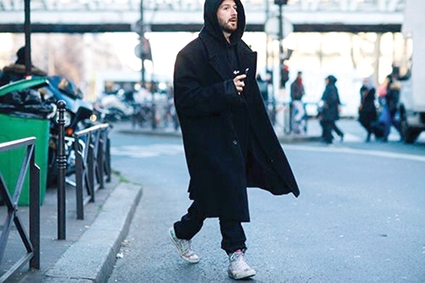Fashion in Tbilisi: Trending Change
Half a decade ago, few people regarded Tbilisi as a fashion capital. Stuck in post-Soviet trauma and struggling to find its political feet, the city was overlooked and unknown. However, since Georgian designer Demna Gavasalia burst onto the international fashion scene, the fashion industry has been gaining momentum and notoriety. For many Georgians in Tbilisi, the industry has become a symbol of change and progress in a city that is still carving its new identity.
It’s been over four years since the announcement that Demna Gavasalia would become the artistic director of Balenciaga, firmly cementing Tbilisi as a powerful force in the world of fashion. “His voice stirred curiosity in the history and culture of the region,” said Vogue.com Fashion News Writer Liana Satenstein in an interview with Fashionista. “The country has a fledgling group of talents, and Gvasalia just helped shine the light on them.”
As the world’s fashion eye turns its attention to Tbilisi, Tbilisi’s youth and fashion culture are turning their eyes towards self-expression and cultural change. Music, fashion, arts, and a generation of motivated, creative, and curious young Georgians are fuelling a cultural revolution in Tbilisi which is being watched by the rest of the world. The popular culture magazine Dazed and Confused even ran a whole day focusing on Tbilisi on 11 January 2019.
Young designers are using their style not only as a reflection of self-expression, but also to dissect Georgia’s difficult past and question the country’s future. In past collections, designer George Keburia combined gun prints influenced by the civil wars in the 90s with rainbow colors, ruffles and the word ‘Gay’ written in glitter.
Meanwhile, Tika Paksashvili created a collection subtly exploring the testing transition from Soviet times into modernity. Her campaign, shot by Giorgi Wazowski, showed traditional countryside, with androgynous models in gregarious checked pantsuits replacing locals.
Georgian designers today seem torn between belonging, distance and restraint, and excess, perhaps due to the complex social and historical context of the country. However, there is a clear undercurrent of freedom. “There’s this generation of young people who have the power to rule their own lives who don’t live in fear of any kind of terror,” said Gvantsa Jishkariani, stylist and gallery owner, in an interview with Indie Mag.
This fearlessness and the power of the arts to fuel change came to light in May 2018 following the police raids on famous techno clubs Cafe Gallery and Bassiani, which saw thousands of young Georgians taking to the streets to protest their right to party. A sound system was set up in front of the Old Parliament building as youngsters danced for change.
However, the unsanctioned raids also reflected the difficulties for many free-thinkers in Georgia. “There’s a dark side to Tbilisi that makes itself known every now and then to remind you that things are still complicated here,” said Tamuna Karumidze, founder of Troubelmakerz alternative modeling agency and Tamra Skateboards, in an interview with Dazed and Confused magazine.
Some people believe the government is afraid of the change being brought about by Tbilisi’s creatives. Traditionally a conservative country, the country is often closed to change and against liberal values. Despite the crackdowns, the new generation of Georgians has shown they are willing to bravely fight for the right to express themselves creatively.
By Amy Jones
Image source: fashionlaw.com











